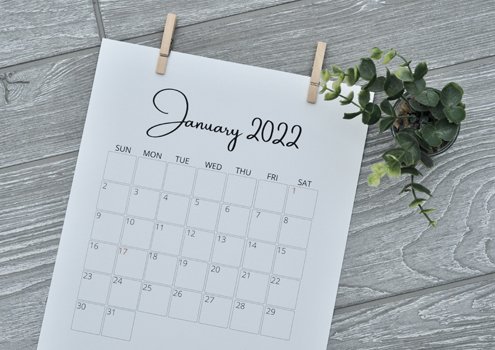Reading time: About 3 minutes
If you don’t know how to meet deadlines, my hunch is that you frequently say something like, ‘I’ll do this by the end of the month.’ Here’s why you should stop…
How often do you tell yourself the lie that you’ll finish your project, report, chapter or even entire book, “by the end of the month”?
Judging by the number of times I hear this expression from clients, I’m betting you’ve said it yourself, perhaps even recently.
There are some excellent reasons many of us tend to gravitate towards this remarkably vague and imprecise phrase (I won’t go so far as to call it a promise and it’s certainly no commitment.) First, it sounds a LONG way off. In fact, any date in January, even Jan. 18, sounds as though it’s eons away from February 1st.
The difference in the name of the month is enough to make us believe that we’re going to have oodles of time in which to complete our writing, even when, usually, we don’t.
Also, the phrase allows us to be a little bit lazy. Because “the end of the month” sounds a long way off, we’re seduced into believing we won’t need to do the hard work of counting minutes, days and hours to figure out what’s truly feasible. It’s a little bit like believing writing happens by magic rather than by hard work.
But this type of imprecision is a big problem for two reasons: First, we haven’t calculated how much work we really have to do. Second, we haven’t analyzed how much time we really have.
Here’s a better way to learn how to meet deadlines:
Whenever you have a writing project to finish, begin by calculating the time you actually have. For example, if you’re reading this post on the day it was published, it’s January 18. That means there are exactly nine business days until the end of this month. (And, fewer if you’re reading this column later than Jan. 18.)
Pull out your calendar and examine it carefully. Are there any meetings, events or other commitments that will get in your way of writing on any of these days? If there are, remove them from your calculations.
Next, figure out how many minutes or hours you can write per day. For most non-professional writers, I suggest keeping the goal to well less than one hour. (The vast majority of professional writers won’t spend more than a couple of hours a day writing, in any case. Writing is too exhausting to do for much longer than that.)
Then, remember that you’ll also need to reserve some time for editing. (And I presume you’re trying not to do these two jobs at the same time.) Generally, I find editing should take twice as long as the writing.
When you’ve figured out how much time you can spend on your project each day, multiply that by the number of days you have remaining in the month. Example: It’s January 18 and you have an all-day meeting on Jan. 21 so that leaves you with eight business days for writing before the month ends. You’re able to clear your schedule for writing for 30 minutes a day meaning, 8 x 30 minutes. In total, this gives you just 240 minutes — or six hours — of writing time for the rest of January.
Whoa, that’s a lot less time than you thought, isn’t it? Sobering! Let’s revisit how to meet your deadlines:
How many words can you typically write in an hour? Some people (mostly academics) tell me they can’t manage more than 250. Faster people can often produce 750 to 1,000 words. The super-fast can sometimes get 2,000. But this simple arithmetic reveals that if you have six hours you’re going to be able to write perhaps as few as 1,500 words and certainly no more than 12,000 (assuming you’re a super-fast writer) in the eight days remaining in January.
And you haven’t even started calculating the time you’ll need for editing, yet.
Conclusion? If your project is longer than your writing speed will permit in the eight days of the month remaining, we know right now that you’re not going to be able to do it.
ACK! What do you do in a situation like this? Your project is going to require more time than you actually have.
To learn how to meet deadlines, you need to learn how to embrace reality. Actually, it’s a great benefit to you to know — in advance — that the mindless promise to finish something “by the end of the month” is not going to work.
First, it’s always easier to renegotiate dates with clients or supervisors if you do the negotiations far in advance. It shows more respect for their busy schedules and it allows them to make other plans if they need to.
Second, the planning fallacy, usually binds us too closely to our original plan, even though it might have been wildly unreasonable. If you force yourself to do the detailed analysis to figure out how much time you actually need, you’ll be in a much better position to figure out a far more reasonable deadline.
Third, acknowledging reality allows you to be kinder to yourself. Why should you think less of yourself for failing to finish a project that would be impossible to do in the small amount of time that you have? And why should you beat yourself up for that?
Whatever you do, don’t ever allow yourself to become hostage to the careless expression, “I’ll get this done by the end of the month.”
The end of the month will always arrive a lot sooner than you think.
*
Need some help developing a sustainable writing routine? Learn more about my Get It Done program. The group is now full but there is turn-over each month, and priority will go to those who have applied first. You can go directly to the application form and you’ll hear back from me within 24 hours.
*
My video podcast last week addressed why and how to cut words from a book you’ve written. Or, see the transcript, and consider subscribing to my YouTube channel. If you have a question about writing you’d like me to address, be sure to send it to me by email, Twitter or Skype and I’ll try to answer it in the podcast.
*
Do you have a hard time meeting your deadlines? We can all learn from each other so, please, share your thoughts with my readers and me in the “comments” section below. Anyone who comments on today’s post (or any others) by Jan. 31/22 will be put in a draw for a digital copy of my first book, 8 1/2 Steps to Writing Faster, Better. Please, scroll down to the comments, directly underneath the “related posts” links, below. Note that you don’t have to join Disqus to post. See here to learn how to post as a guest. It’s easy!


